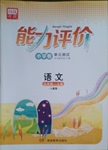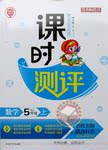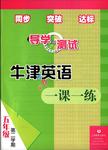题目内容
完型填空
阅读下列短文,从每题所给的A、B、C和D项中,选出最佳选项,并在答题卡上将该项涂黑。
It was unusually quiet in the emergency room on December 25. I didn’t think there would be any , sighing about having to be on duty on Christmas. Just then five bodies at my desk, a pale woman and four children.
“Are you all ?” I asked doubtfully. “Yes,” she said weakly and lowered her head.
But when it came to of their problems, things got a little strange. They all claimed to have headaches, but the headaches weren’t accompanied(陪伴) by the body language of holding the head or trying to keep it still.
Something was wrong. Our hospital policy, , was not to turn away any patient. I explained it might be a little while a doctor saw her. She responded immediately, even a bit “Take your time,” and then added, “It’s warm in here.”
Out of curiosity, I checked their registration form. No address—they were . I went back to the nurses’ station and mentioned we had a family of five in the waiting room. The nurses, complaining of Christmas day, turned to sympathy for a family just trying to get on Christmas. The team went into action, much as we do when there’s a emergency. But this was a Christmas emergency.
We were all a free meal in the hospital dining hall on Christmas Day, so we took back that meal and prepared a big dinner for our .We needed presents. We from different departments candies, fruits and other things that could be presents. As seriously as we met the needs of the patients that came to us that day, our team worked to meet the needs, ________ the expectation, of a family who just wanted to be warm on Christmas.
, as the family walked to the door to leave, the mother came back, gave me a hug and whispered, “Thanks for being our angels today.”
1.A. patients B. customers C. nurses D. doctors
2.A. took up B. showed up C. came up D. held up
3.A. tired B. hungry C. sick D. drunk
4.A.descriptions B. directions C. instructions D. contributions
5.A. unique B. ordinary C. normal D. unusual
6.A. therefore B. otherwise C. moreover D. however
7.A. after B. since C. before D. when
8.A. shyly B. happily C. calmly D. politely
9.A. careless B. hopeless C. helpless D. homeless
10.A. operating B. performing C. managing D. working
11.A. warm B. gift C. relief D. medicine
12.A. beneficial B. similar C. medical D. different
13.A. rewarded B. offered C. allowed D. bought
14.A. neighbors B. relations C. victims D. guests
15.A. borrowed B. received C. collected D. bought
16.A. expensive B. useful C. special D. available
17.A. healthy B. physical C. basic D. mental
18.A. without B. below C. behind D. beyond
19.A. Later B. Soon C. Next D. Then
20.A. to run B. run C. running D. and ran
 能力评价系列答案
能力评价系列答案 唐印文化课时测评系列答案
唐印文化课时测评系列答案 导学与测试系列答案
导学与测试系列答案
